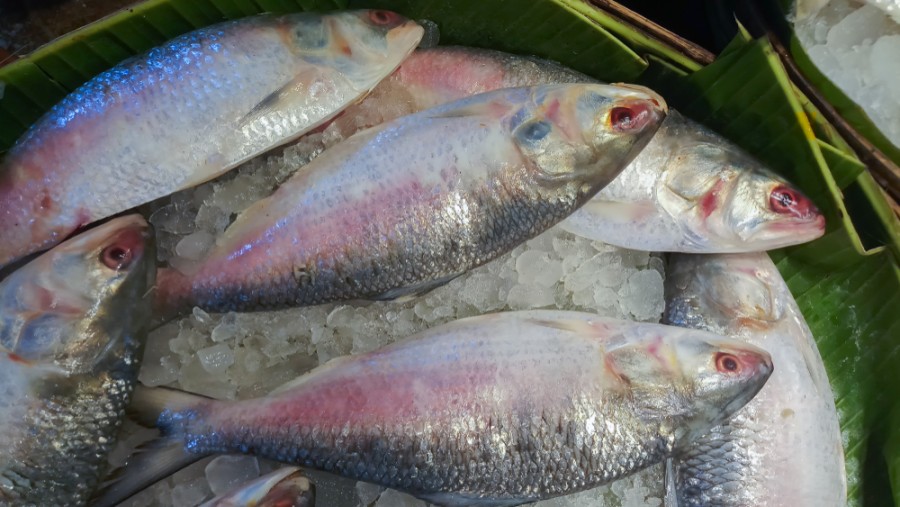Bangladesh will export more than 1,400 tonnes of Hilsa to Bengal, the largest consignment in recent times, according to several fish exporters in Dhaka.
The Bangladesh government’s permission to Hilsa exporters (order dated September 10, 2020) says the allowance is for Durga Puja and will remain valid till October 10.
The fish, packed in styrofoam boxes, will start reaching Calcutta from next week and will be delivered in phases by trucks crossing over the Petrapole border outpost near Bongaon in North 24-Parganas.
“Last year, the Bangladesh government had sent 500 tonnes of Hilsa as a goodwill gesture to Bengal ahead of Durga Puja. This time the volume is nearly three times that,” Syed Anwar Maqsood, secretary of the West Bengal Fish Importers’ Association. “Apart from markets in Calcutta, Howrah and adjoining areas, we will distribute this Hilsa to the wholesale fish markets in North Bengal as well.”
“This has been a good season for the Padma Hilsa in Bangladesh,” Kazi Abdul Manna, director of Seven Star Fish Processing Limited in Bangladesh, told Metro from Pabna. “The government has allowed nine fish merchants to export Hilsa this time against one last year. The size of the fish will vary between 900g and 1.2kg. We hope you enjoy the taste.”
Despite a flicker of hope, this year has been somewhat frustrating for fishermen in parts of Patharpratima, Kultali, and Frasergunge in South 24-Parganas and in Digha and Sankarpur in East Midnapore who have been venturing into the seas for their catch of Hilsa.
“Fishermen couldn’t venture into the seas like previous years because of inclement weather and the lockdown,” Chandranath Sinha, the state fisheries minister, said.
The production of Hilsa in Bengal has dwindled from around 80,000 tonnes in 2001 to close to 15,000 tonnes in 2013 to around 10,000 tonnes in 2017 largely because of excess fishing in the Bay of Bengal.
The Bengal government has now banned the catching of Hilsa between April 15 and June 14, the breeding season of the fish.
Bangladesh, in comparison, has been able to check the declining Hilsa population by banning fishing during the breeding period and establishing sanctuaries for the fish.











